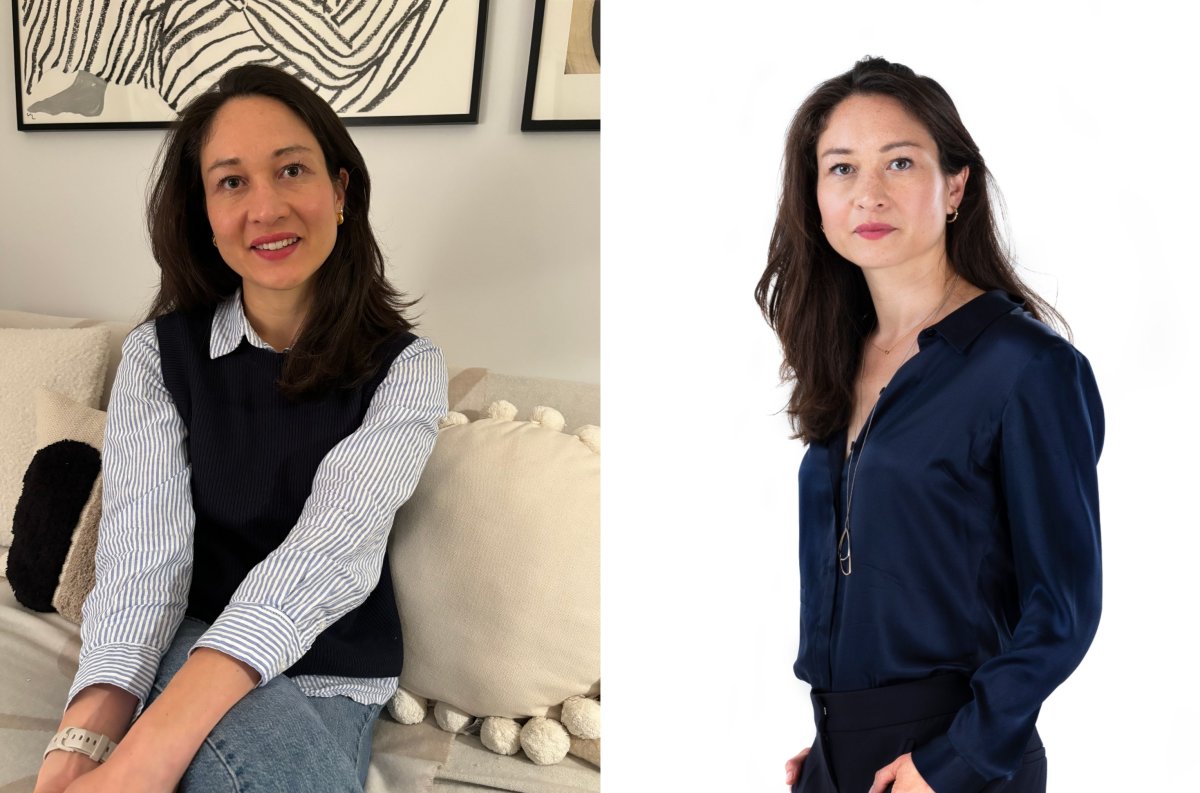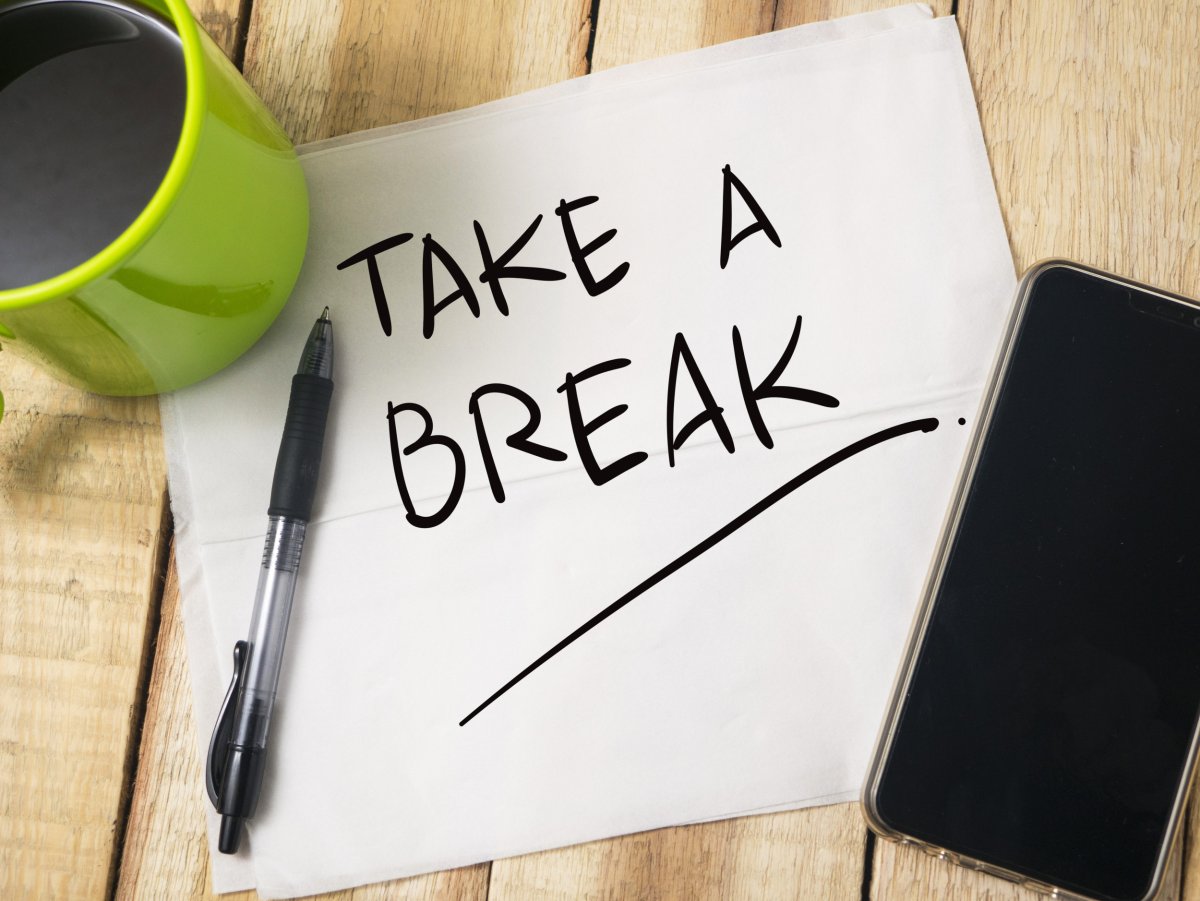Is this kind?
If every decision made by every person at work—where many of us spend most of our daily lives—were to begin with that one question, what would the workplace look like?
Laura Tan is a company director, "a lifelong grafter", and a firm believer that kindness could be the key to the work-life balance we're all striving for—and experts say she is certainly on to something.
The 39-year-old told Newsweek: "There has to be a middle ground between previous 'hardcore' attitudes towards productivity that aren't healthy and a new emerging attitude that feels a bit 'anti-work' and anti-ambition."
That middle ground being "kind productivity," a term recently pondered by Tan that prompted a lot of discussion and approval after she shared it on LinkedIn.

How Work Has Changed
Views towards the workplace have seen seismic shifts in recent years with the normalization of remote working, the blurring of office boundaries, and more people questioning their priorities after the COVID-19 pandemic.
The 2021 Work and Well-Being Survey from the American Psychological Association (APA) found that burnout and stress were reported to be at an "all-time highs across professions," with 79 percent of employees having experienced work-related stress in the month before the survey was conducted.
The rise in burnout led to traction over "lazy girl jobs," a term that took off on TikTok last year advocating a better work-life balance. The trend was an outcry against a previous era of "girlbossing," which glorifies women working themselves into the ground for their career.
Last year, more than a third of workers (36 percent) were reported to be "quiet quitting," another social media-derived trend defined as "doing the absolute bare minimum," in a survey of 2,000 eligible voters in the U.S. conducted in January 2023 for Newsweek by Redfield & Wilton Strategies.
Tan, an older millennial, believes that the younger Gen Z workforce is already "far better" at prioritizing and being open about mental health, personal wellbeing and a work-life balance than her generation "who grew up in a more burnout/crazy working hours culture."
Alex Budak, a faculty member at UC Berkeley Haas who teaches leadership to Gen Z students, told Newsweek in November 2022 that members of Gen Z are "comfortable questioning the status quo...especially around work norms."
Instead of "blindly following systems which don't always make sense or reflect inclusive norms, they have a penchant for finding new ways of working," he said at the time.
What Is Kind Productivity?
Tan is the co-founder and strategy director at Notable, a brand agency based in London, U.K., whose clients have ranged from Jaguar and Prada to LG and the Museum of Modern Art (MoMA) in New York City.
To Tan, kind productivity aims to be a "softer" take on what it means to be productive. It still entails making progress "but isn't just about killing yourself for personal/financial gain."
She explained: "It's about still being ambitious and achieving things but with an attitude of kindness at the center.
"Kind to yourself... kind to others, kind to the environment," she added.
"In my personal life, as a working mom, I'm trying to show my kids that kindness is the most important quality in life and that every action/decision should start with the question 'is this kind?'," she added.

What Do Experts Make of It?
Kind productivity takes an approach that shouldn't be radical but in reality, is: that employees should see themselves as people first, not workers.
Atlanta-based executive coach Sam Adeyemi, who is the author of Dear Leader: Your Flagship Guide to Successful Leadership, summed up kind productivity to Newsweek as "caring about the person before we care about the task."
"It means paying attention to the feelings of those we work with, so that we know when they're not as joyful or enthusiastic or motivated as they usually are and finding out why; taking an interest in their lives outside of work because it actually affects the job," he added.
The movement's focus on quality over quantity also paves the way for a more positive work environment, which could lead to improved staff morale and retention.
Wyoming-based executive coach Daniel Boscaljon, the founder of the Healthy Relationship Academy, told Newsweek that "one toxic influence of unhealthy business culture is to look toward an unsustainable standard of maximal yield."
According to Boscaljon, this approach "recognizes the importance of inviting people to assess how they feel when they're working on a project as well as when they finish, creating "a shift from employees thinking of themselves as functions to respecting themselves as persons."
After all, the first customers of every establishment are its employees, so there would be no business without any workers.
But, of course, it needs to be recognized that in order for a workplace to exist at all, it needs to be successful. Could such focus on a more humane approach to work end up having a negative impact on productivity?
American author and financial adviser Eric McDermott told Newsweek: "No one person's flexibility comes without the added incremental burden of many others.
"The one accepting the flexibility must also accept an obligation to make the accommodations as little an imposition as reasonable, and a willingness to pay it forward and step in when someone else needs the flexibility.
"Perfect? Hardly. Sustainable and balanced? Absolutely," he added.
While interpretations of kind productivity would differ depending on business models and needs, the overall culture switch is certainly viewed as a step in the right direction, with Florida-based psychologist and business coach Sharon Grossman telling Newsweek it is "not just a buzzword" and is in fact "a roadmap to a brighter and more prosperous future for both individuals and the organizations they serve."

The Dangers of Toxic Productivity
Stress and burnout can result from "toxic productivity," which is "the harmful tendency for someone to derive a significant amount of self-worth from how productive they are," Natalie Dattilo, a licensed clinical psychologist and instructor of psychology at Harvard Medical School in Boston, told Newsweek.
The Stress in America 2023 survey found that those aged from 35 to 44 experienced the highest increase in mental health diagnoses, with 45 percent reported to have had a mental illness last year. Those aged from 18 to 34 reported the highest rate of mental illnesses at 50 percent in the same year.
Celeste Lizzie, 29, from Shiloh, Illinois, worked at one of the "big four" management consulting firms in Washington, D.C. for nearly five years before suffering a mental breakdown in 2020 from extreme burnout and overworking.
The former strategy senior consultant told Newsweek: "My entire life was my work."
"It encompassed my identity, my perceived value, and was the number one priority I maintained in my life. Everything else that was necessary in life was fit in around work, if it could fit at all."
Everyone around her "lived and breathed" the hustle culture lifestyle.
During an important client meeting in July 2020, she recalled being asked questions and "I could hear what I was being asked but the part of my brain that could process that language, think through, and then vocalize a response was not working."
Her colleague stepped in to continue the conversation, then after the meeting she got a call from her manager asking what happened and "that's the moment I knew I had to go to the hospital."
That week she went to see a doctor who told her "if you don't stop what you're doing [the long hours and the constant exposure to high stress and extreme burnout], your life is going to be very short."
She was diagnosed with major depressive disorder, severe panic and anxiety disorder, and post traumatic stress disorder (PTSD).
"The last diagnosis really shocked me...yes, you can get PTSD from your high stress job, even if you're just sitting at your computer for hours on end," she said.

The former strategy consultant was immediately put on medical leave. After briefly returning to work in October 2020, she eventually quit and moved to the Spanish island of Mallorca in November 2020 before heading to Stuttgart in October 2023.
She said: "There's nothing like being told you're working yourself into an early grave to get you to change things up very quickly. I knew that I had to completely change how I was living my life in order to continue living it."
When in Spain, her doctors told her to "prepare for a minimum of 10 years recovery due to my diagnoses and the length of time I went without receiving medical treatment," she said, noting that her brain was "still forming as a young adult" and "rewired itself" while she was pursuing the hustle culture lifestyle.
Dr. Sarah Bonza, a board-certified family physician and national board-certified health and wellness coach based in Columbus, Ohio, told Newsweek that while a recovery period of a decade can sound alarming, it is possible.
Four years into her recovery, Celeste Lizzie has launched a lifestyle brand, Isn't She Stellar, that provides support and community for women who have also shaken off their "girlbossing" mantras. She is now "in love with the version of myself."
While she thinks companies embracing kind productivity as a workplace culture is "a start," it's worth reflecting why concepts such as this have become so popular in the first place.
She noted: "It's important to recognize that, as a society, we have collectively deemed economic productivity and growth as the sole marker of success, which has translated to how we as individuals interpret our own value and self-worth.
"What if we lived in a world where we de-centered work as the core of our identities and de-centered economic productivity as how we measure our value?"
How to Practice Kind Productivity
Adeyemi noted that for kind productivity to be practically implemented in the workplace, leaders must decide on what kindness consists of.
"Kindness will not go far without two things—trust and empathy. Transparency, and a concerted effort on behalf of workplace leaders to encourage openness, transparency and cultivating the seeds of trust and empathy in order for kindness to prevail is key," he explained.
Since sharing the concept, Tan has been trying to champion it everywhere she can and where she has the most impact. Some of her changes include:
- Allowing for fully remote working if that's what employees prefer, so they can work/live in places that fit with their lifestyle. "People from our team live in the Lake District, Somerset, Washington, D.C. and many other places," Tan noted.
- Implementing a full two-week Christmas "shut down" to allow people to spend time with their families and not be interrupted by work.
- Encouraging employees to take time to pursue other interests. For example, "our creative director had a three-month sabbatical this summer to play table tennis and she is a top 50 player in the U.K.," Tan noted.
- Providing a company-funded individual and group coaching program to allow for personal development and how to overcome issues such as 'imposter syndrome' and burnout.

Tan would love to see more kind productivity practices incorporated in other ways in the workplace. She said "it would be amazing if, for example, workplaces gave everyone a couple of hours a week to 'be kind' in whatever form that it takes."
This could entail taking a colleague out for a coffee because they're having a hard time and for that not to be seen as counterproductive or skipping work, but in fact enhancing productivity and well-being in another way.

Do you have a work or health-related dilemma to share? Let us know via life@newsweek.com. We can ask experts for advice, and your story could be featured on Newsweek.
Uncommon Knowledge
Newsweek is committed to challenging conventional wisdom and finding connections in the search for common ground.
Newsweek is committed to challenging conventional wisdom and finding connections in the search for common ground.
About the writer
Soo Kim is a Newsweek reporter based in London, U.K. She covers various lifestyle stories, specializing in travel and health.
Soo ... Read more
To read how Newsweek uses AI as a newsroom tool, Click here.








